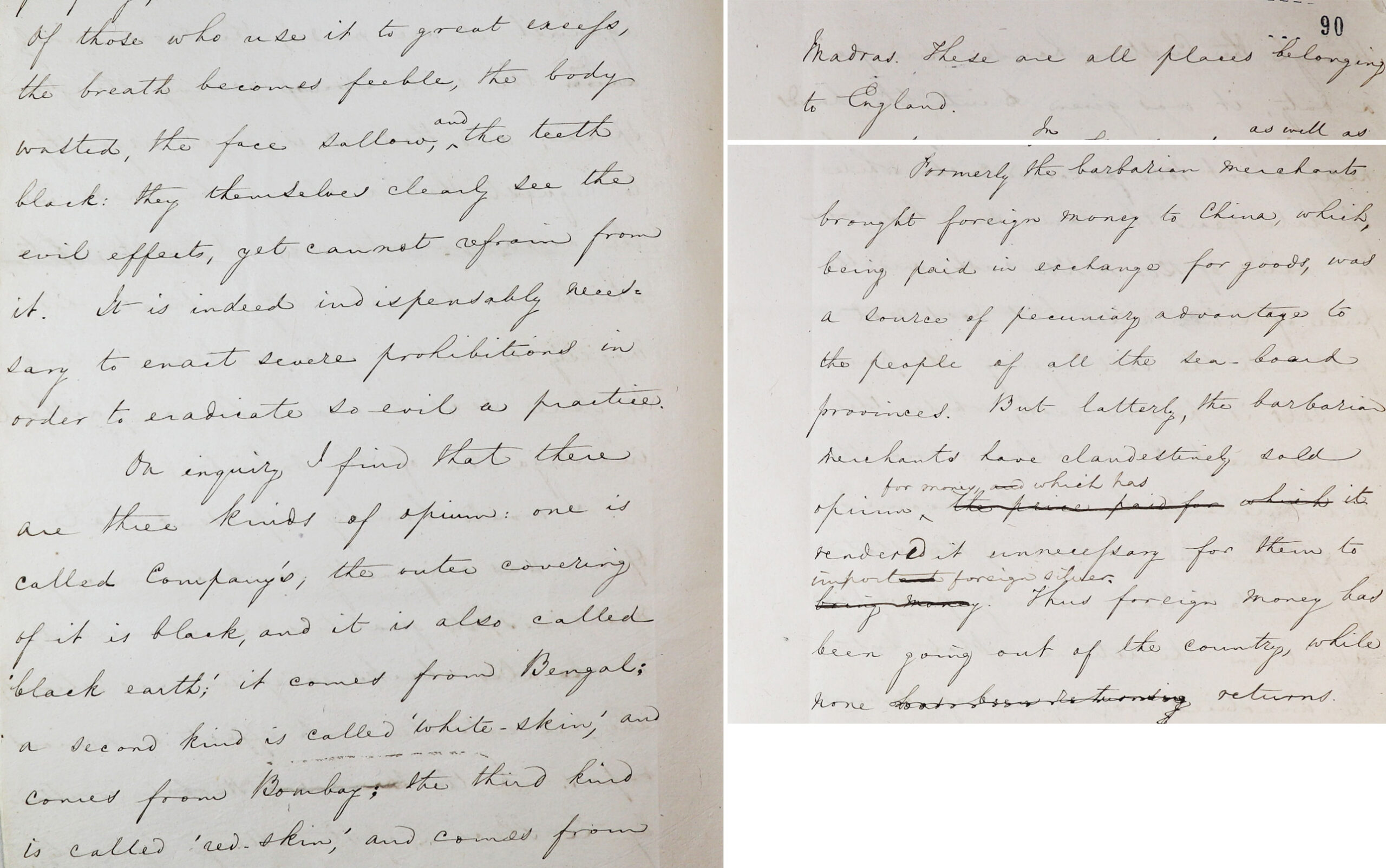
Chinese translations on opium, 1836 (FO 228/4)
This passage is introduced with the text: ‘Heu Naetse, vice-president of the Sacrificial Court, presents the following memorial [statement] to show, in regard to opium, that the more severe the interdicts [prohibitions] against it are made, the more widely do the evils arising therefrom spread…’
This was presented to the Emperor of China as part of a debate on whether to ease the prohibitions on opium or enforce them even more harshly. Both sides wanted to improve the situation that China was in. The Emperor heard arguments presenting the pros and cons of each side and eventually decided to make the prohibitions even stronger.
Transcript
Of those who use it to great excess, the breath becomes feeble, the body wasted, the face sallow, the teeth black: the individuals themselves clearly see the evil effects of it, yet cannot refrain from it. It is indeed indisputably necessary to enact severe prohibitions in order to eradicate so evil a practice.
On enquiry, I find that there are three types of opium: one is called Company’s, the outer covering it is black, and it is also called ‘black earth’; it comes from Bengal; a second kind is called ‘white-skin’, and comes from Bombay; the third kind is called ‘red-skin’, and comes from Madras. These are all places belonging to England.
…
Formerly, the barbarian merchants brought foreign money to China; which, being paid in exchange for goods, was a source of pecuniary [financial] advantage to the people of all the sea-board provinces. But latterly, the barbarian merchants have clandestinely [secretly] sold opium for money; which has rendered it unnecessary for them to import foreign silver. Thus foreign money [i.e., silver] has been going out of the country, while none returns.
- Look at Source 3a. Who do you think wrote it and who do you think translated it?
- Based on this text, name two reasons why the opium smuggling is a problem for the Chinese government.
- What is the author implying by listing the places where the opium is coming from?
- Look at Source 3b. Who do you think wrote it, and who do you think it’s addressed to?
- According to this letter, what are the British doing? Why is the Chinese government unhappy with this?
- The First Opium War started about two years after this letter. Does it give us any clues about why the war started? What do you think might have happened in those two years?
